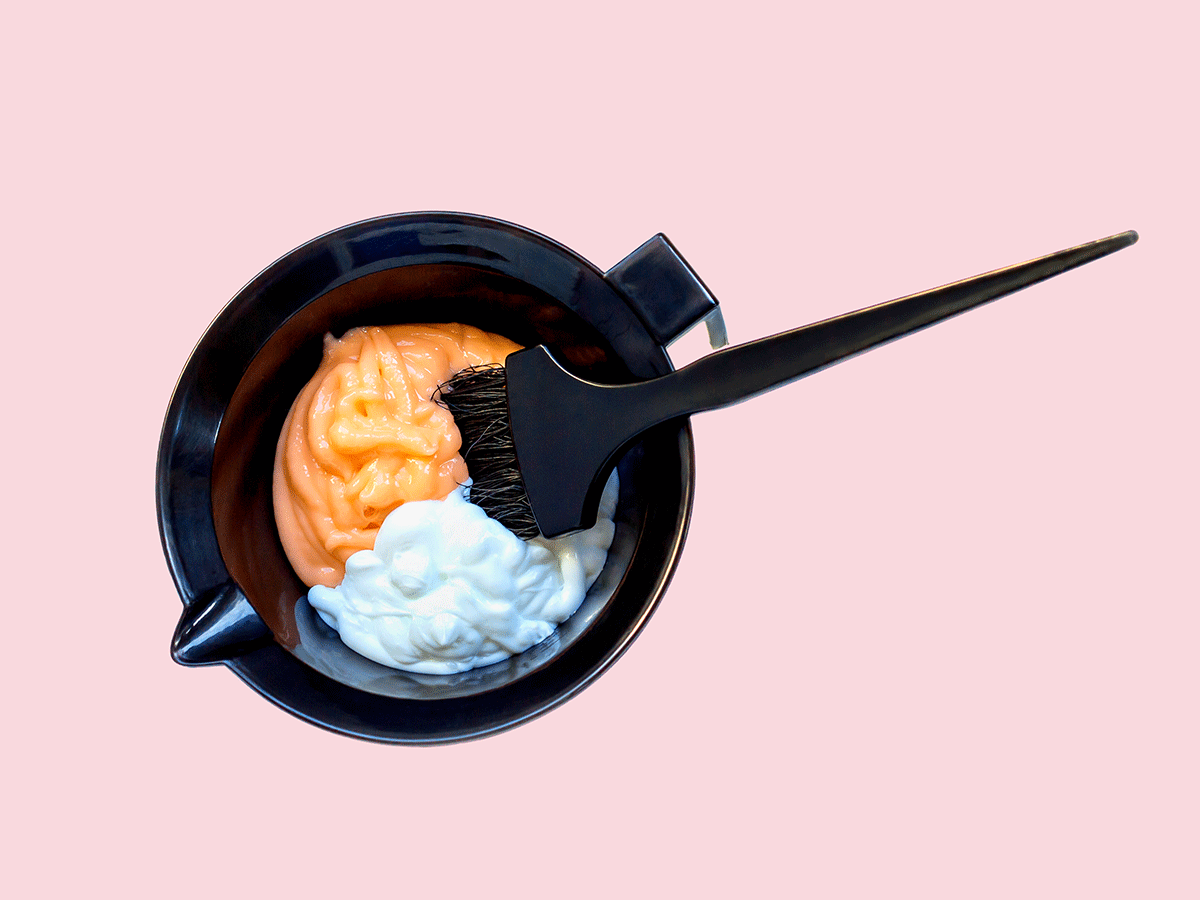
How to touch up roots at home
“Blondes with bad roots first!” I can picture Jason Lee, hairstylist and owner of Jason Lee Salon in Toronto, screaming when he re-opens his doors and a herd of colour-block-haired women push past him in a race to his chair.
While our natural hair colour makes a grander appearance as salon reopen dates keep getting pushed back, we’re left to consider our two options: One: Embrace our roots! Give our hair a break from dye and save the job for a professional. Two: Take charge! Refuse to let COVID-19 take away our freedom and our good-looking locks and take matters into our own (overly-washed) hands.
Those in the former group, good for you. Enjoy your newfound low-maintenance vibe. Those in the latter group, read on: Here, Lee shares his tips for taking care of your roots at home.
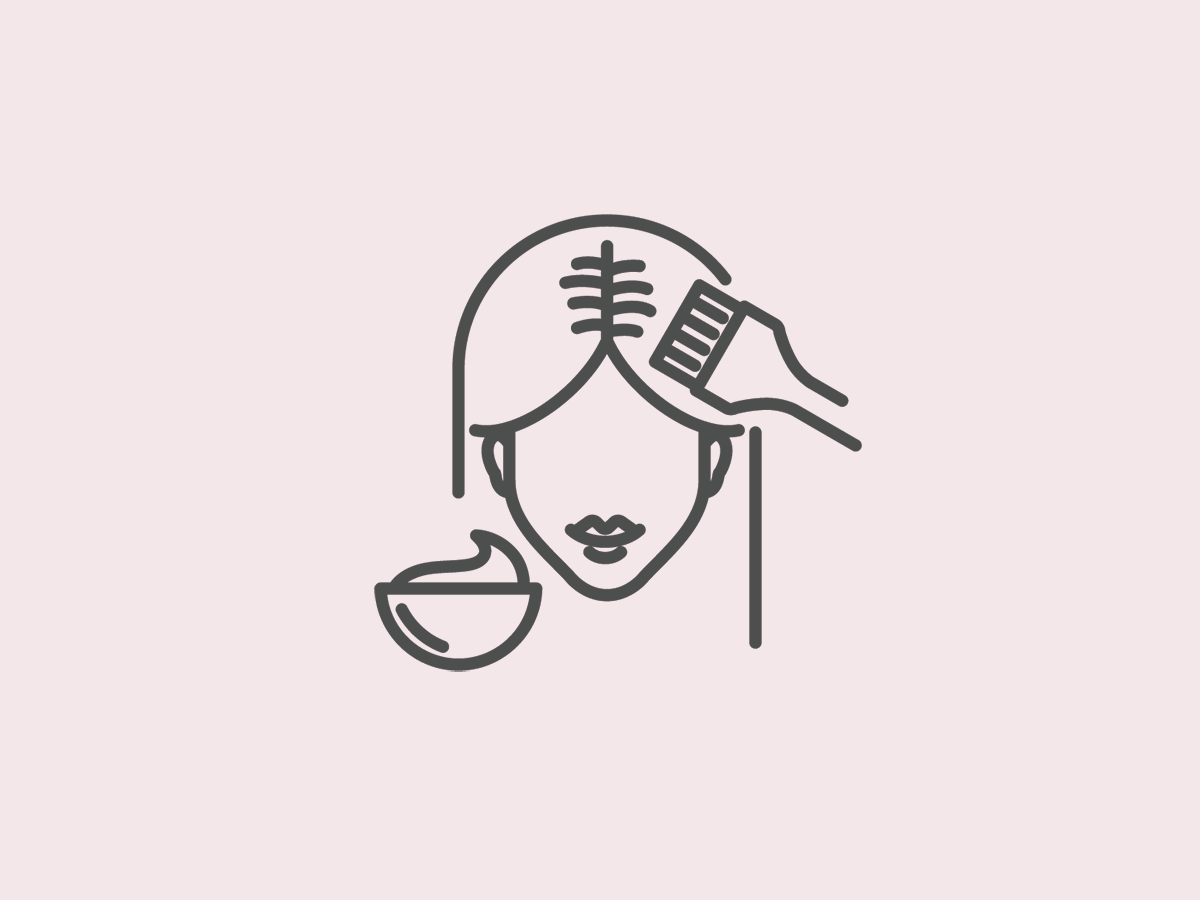
1. Consider a temporary solution
The best and safest solution to covering up roots is using a root spray or powder until you can see an expert, says Lee. Root sprays and powders are temporary dyes that cover greys and wash out when you shampoo. Try Color Wow’s Root Cover Up. “It’s a brush with a powder (similar to an eye shadow), but it can make the hair appear lighter at the root, and comes out with a wash” says Lee. “It’s not a hundred percent foolproof, but these are desperate times!”
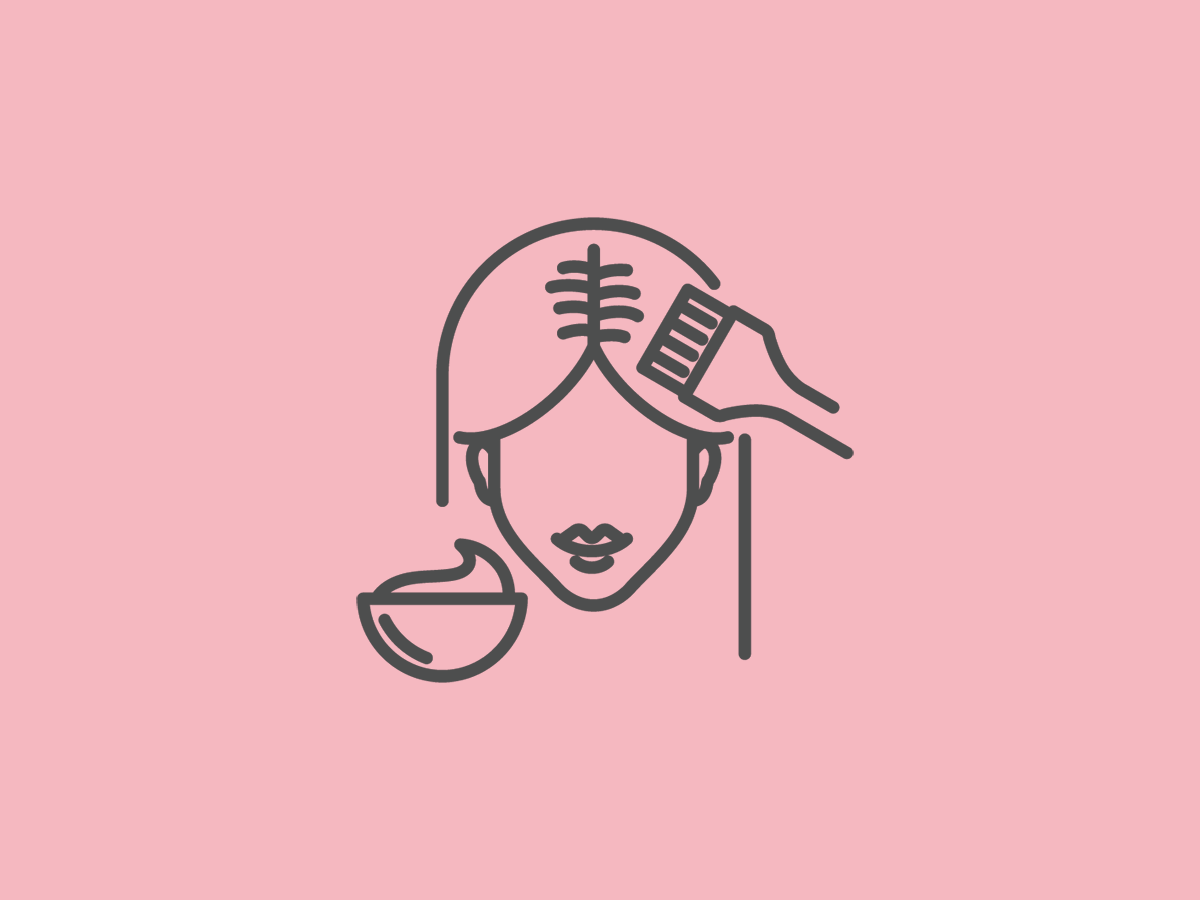
2. Know if you’re a good candidate for a DIY
The best candidates have dark hair, says Lee. This is because the right touch-up colour can blend fairly well with darker hair—but there are still a few risks. “Colour could go too dark or too light and they could get rid of any highlights or balayage on their ends.” For those with light blonde hair, there are even more problems to be aware of, especially for those with highlights and/or dark roots, says Lee. Hair can go brassy, get damaged, or even get darker, if not done properly. “Colour hair is a technical art form,” says Lee. He recommends being aware of the risks before mixing the dye.
(Here’s how to keep your colour-treated hair from looking dry.)
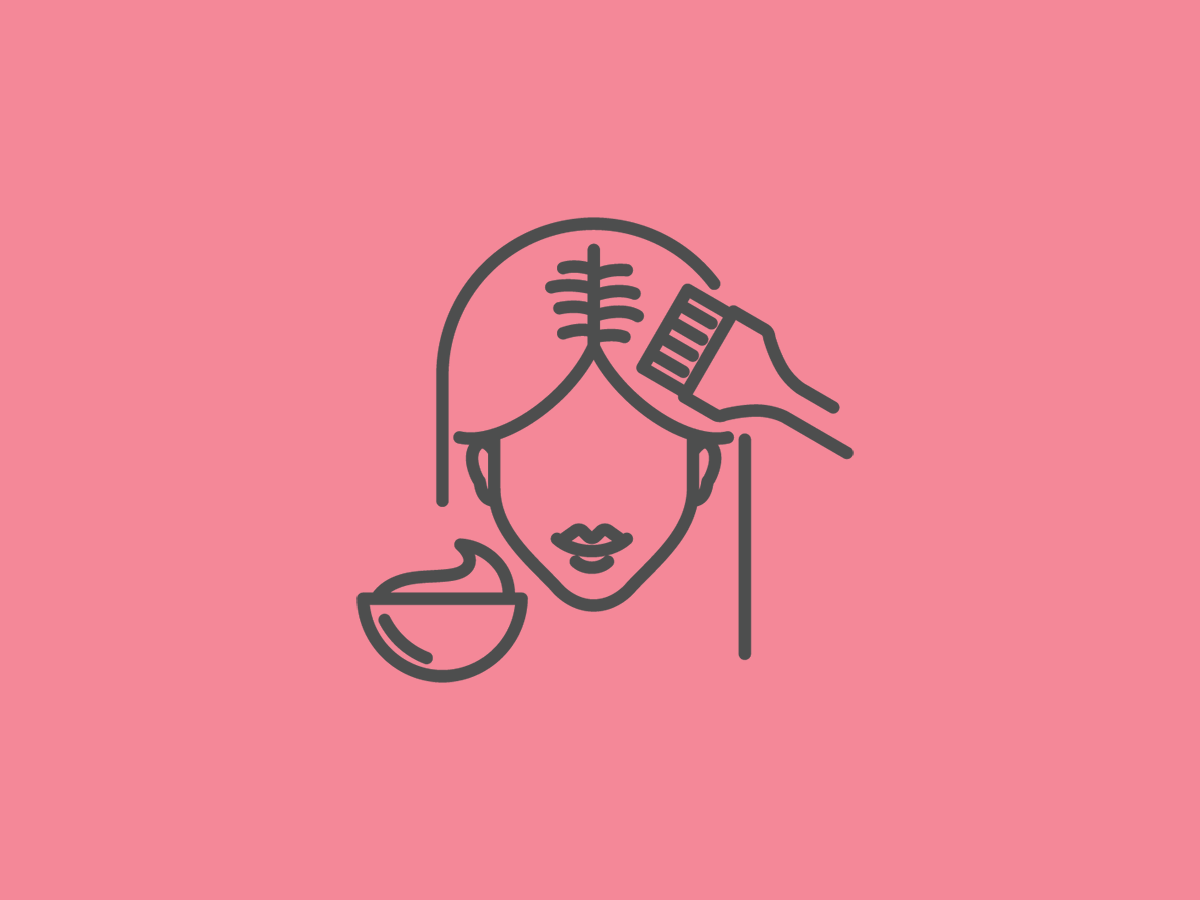
3. Find the most-skilled colourist in your home
“It’s always better to get a helper,” says Lee. They’ll be able to spot any un-dyed patches to help you get a more even look.
(Also, check out the secrets your hair stylist won’t tell you.)
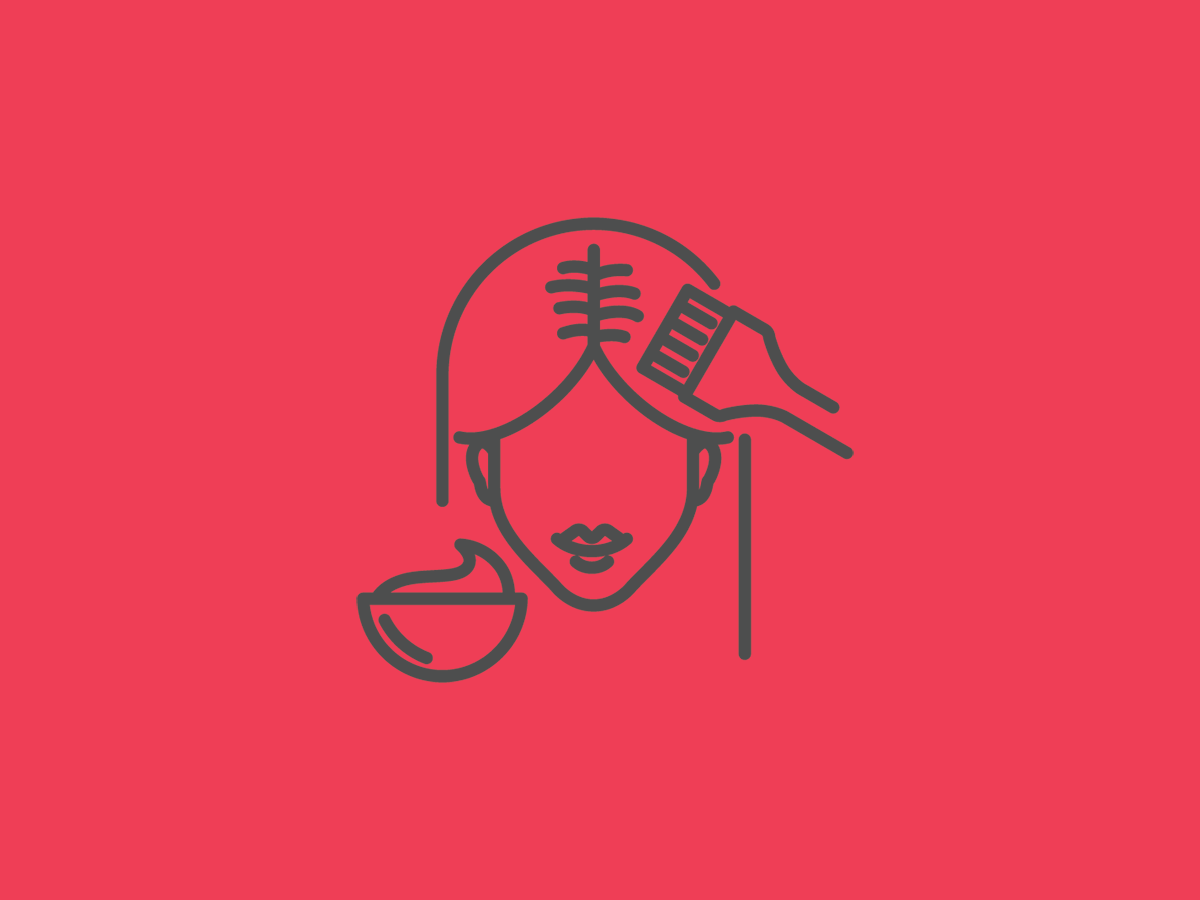
4. Find the best shade
“Reach out to your colourist,” says Lee. “DM them on Instagram or if you have their number, text them, or email the salon.” Some salons are offering to send out hair kits to their clients, so it’s worth inquiring. “One thing to remember is that professional colour performs differently and certainly better than box dye,” says Lee. “The ingredients and the developer in professional colour is customizable and of a higher technology.”
Worried about bugging your hairstylist? Don’t be! “It’s common courtesy to reach out to your colourist to ask them for help prior to buying a box dye,” says Lee. “They’re going to have to work on it after all of this is over, and if you’ve made a mess, it’s a lot of work for them to fix.” Professionals understand the way hair grows out, and they dye hair with that in mind so it looks as natural as possible when roots start to show. “Once box dyes start getting thrown into the mix, technical problems can happen,” says Lee.
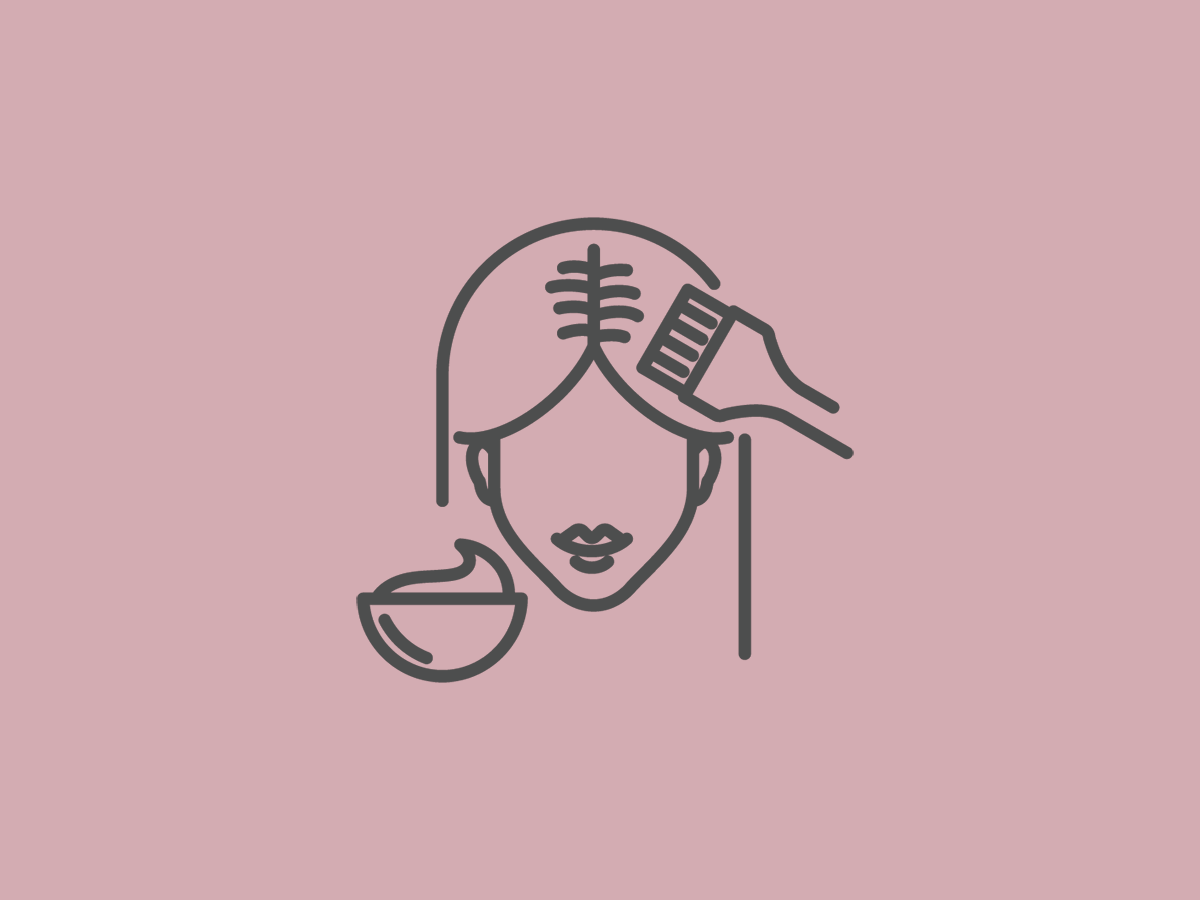
5. Reconsider the box route
“I’m advising to avoid this if possible,” says Lee. “There is a percentage of people who will be able to get away with box dyes, but it’s not for everyone.” To get the right colour, you need to know the rules/.Brunette? Go a shade lighter with box hair dye. “Oftentimes, box dyes can come across inky or super dark,” says Lee. “A medium brown, in my experience, has appeared almost black, so you just have to be so careful.” Blonde or red? Don’t go too light, or you could change the entire hair tone, he says.
Boxed hair dye can be unpredictable, so consider doing a patch test in a hidden area before dying your whole head of hair. “Wash it out and see if it matches the rest of your hair, then go back in and do the entire head,” says Lee.
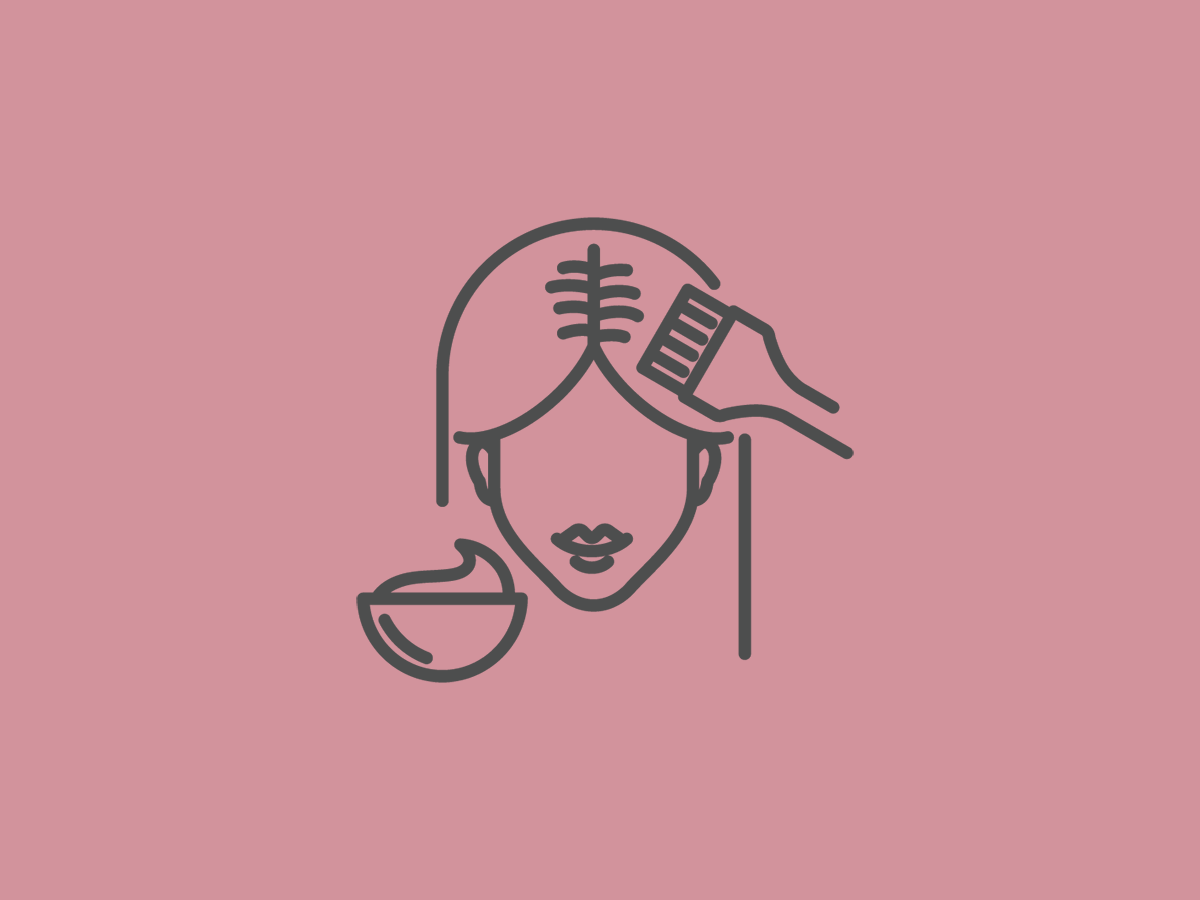
6. Prep right
Start by grabbing a dark towel and removing anything from your bathroom that could stain. Apply Vaseline to your hairline, to protect your skin from the dye, says Lee. Then, section the hair into quadrants before applying colour. “Clip each section out of the way and slowly work your way through the hair section by section,” says Lee.
Need an easier approach? Just concentrate on your hairline and part. “You don’t really need to do the entire head,” says Lee, especially if you’re just covering greys.
A few other tips from Lee:
- Don’t go too far up the hair shaft if you’re just touching up your roots
- If you choose to dye your whole head and you have long hair, you may need two boxes
- Anything your head touches (bedsheets, sofa, etc.) can leave a stain days after the dye job
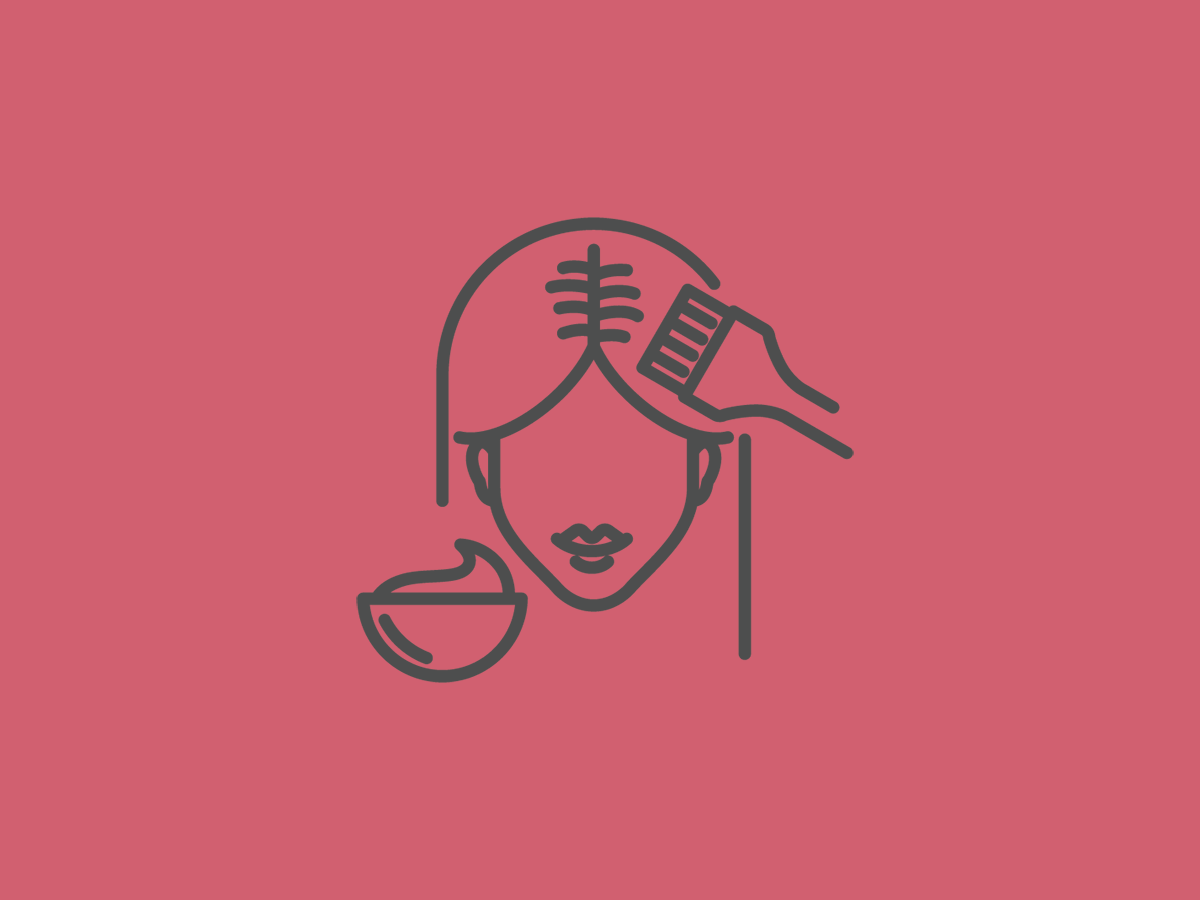
7. Stay alert, stay safe
Hair dye is a chemical and you want to make sure you don’t get it in your eyes,” says Lee. “If it does, be sure to flush it out with water until the burning stops.” Also, some people are allergic to it. So there’s another reason to do a test patch.
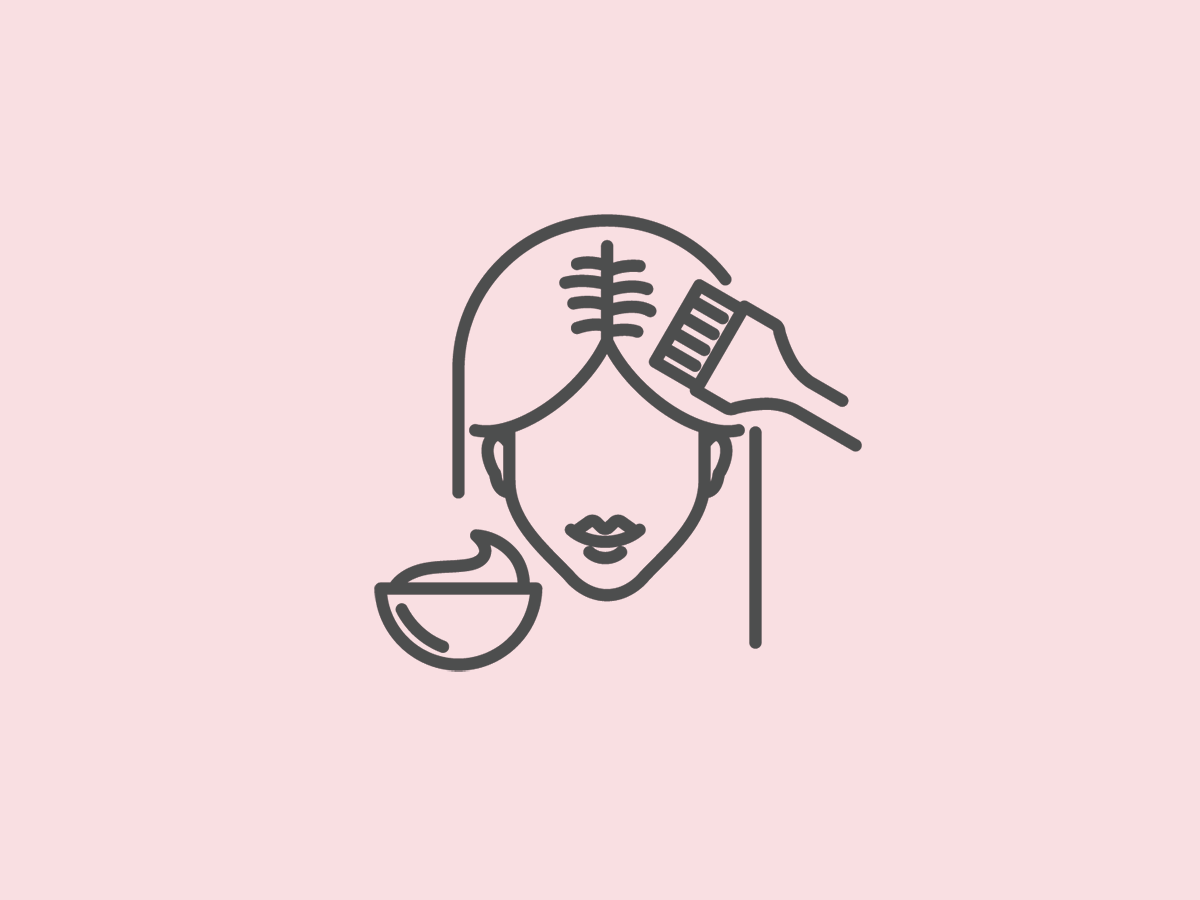
8. Gather the right essentials
Luckily, professional products can be found online. “Have your colourist help you figure out what colour to get,” says Lee. They may be able to direct you to an e-com page where you can order the colour. “You’ll need the colour formula as well as the peroxide which activates the colour, says Lee. You’ll also need a bowl and a brush for application, as well as gloves and a guard/old clothing.
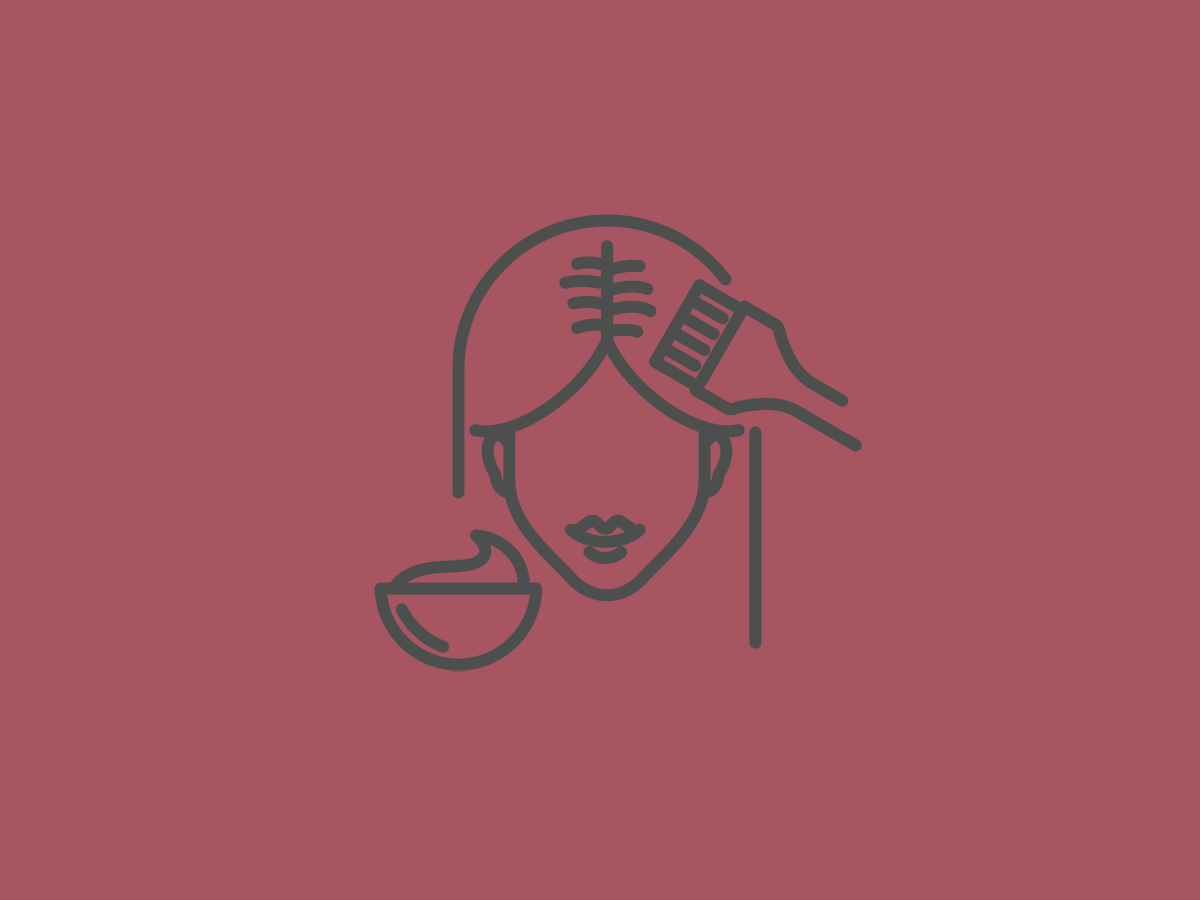
9. Stay away from dye at health stores
“Henna or organic dye isn’t necessarily a bad thing, but it will compromise the ability to highlight or change your colour when you return to your salon professional,” says Lee. He recommends staying away from them, or at least asking your colourist before using them. “The hennas and organic dyes are completely different products than professional hair dye,” he says. “They don’t work well with one another.”
(Learn about the trendy ingredient that can address your hair woes.)
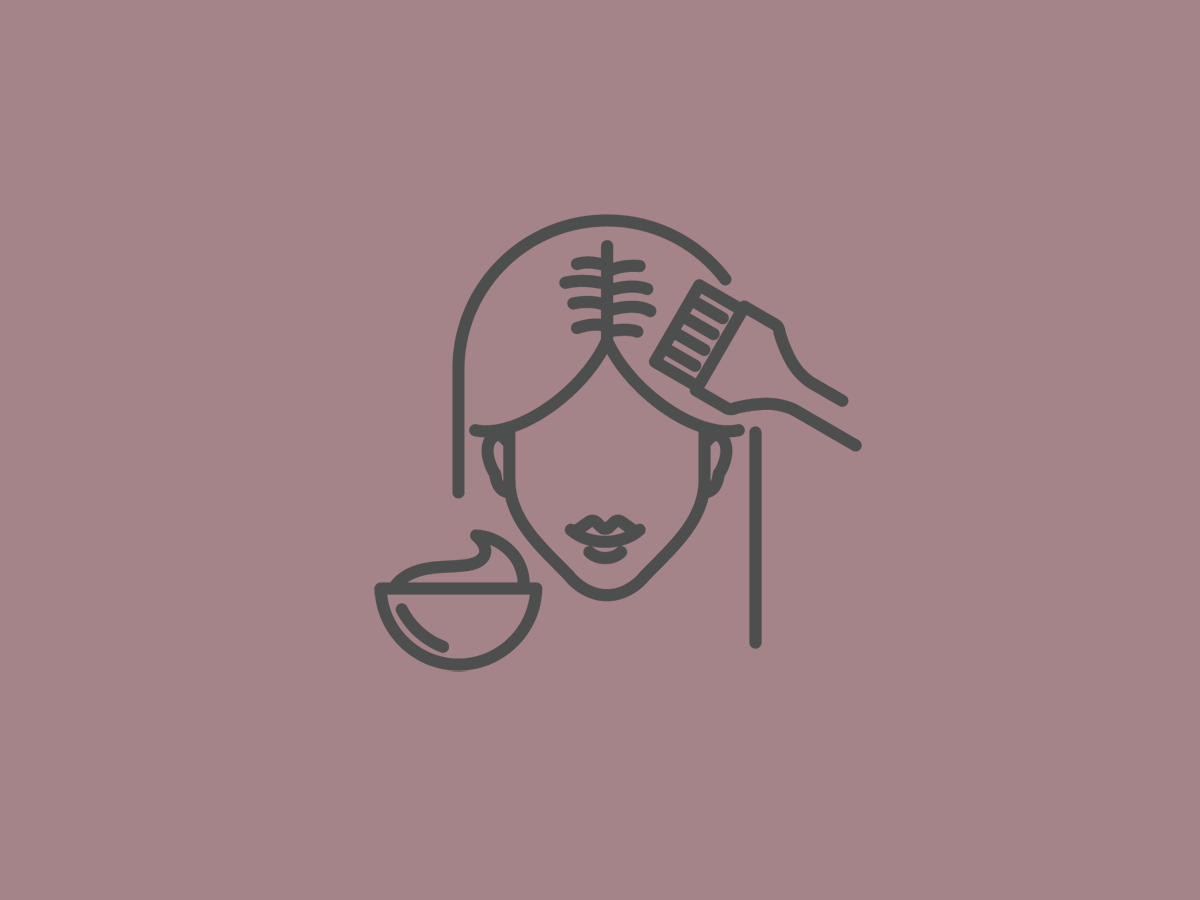
10. Don’t even consider a highlighting kit
“Highlights are not something that can be duplicated at home,” says Lee. And if you try, you can end up causing damage to your hair—not to mention ruining the colour your hairstylist worked hard to achieve. Lee’s advice? Wait it out.
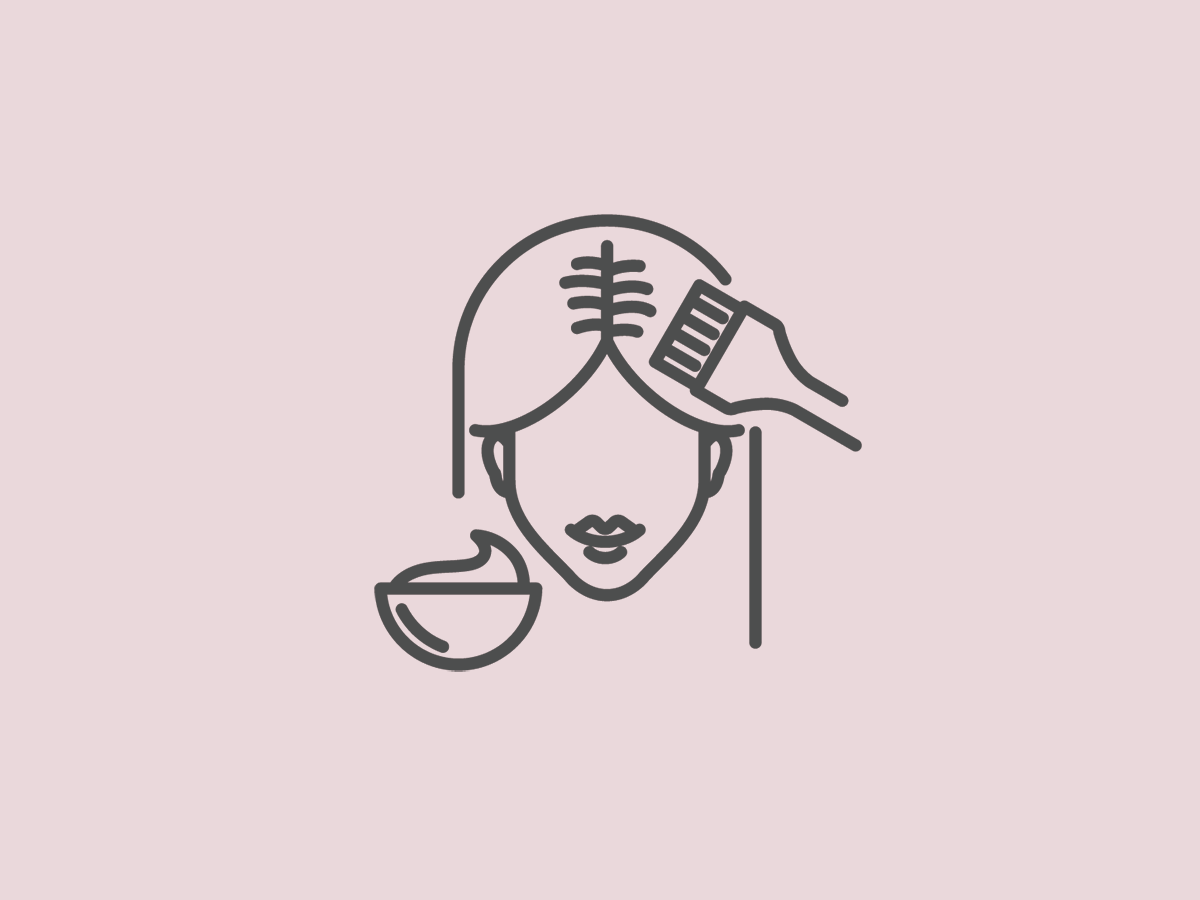
11. If things go badly, surrender
Before you dye, remember that if your hair goes blotchy or too dark, it can be a costly (and an emotionally-exhausting) error that can’t be resolved until the quarantine is over and you can see a professional. Don’t even bother trying to fix it yourself, says Lee. “Colour correction is extremely complicated.” So leave it alone, and leave it for the professionals.
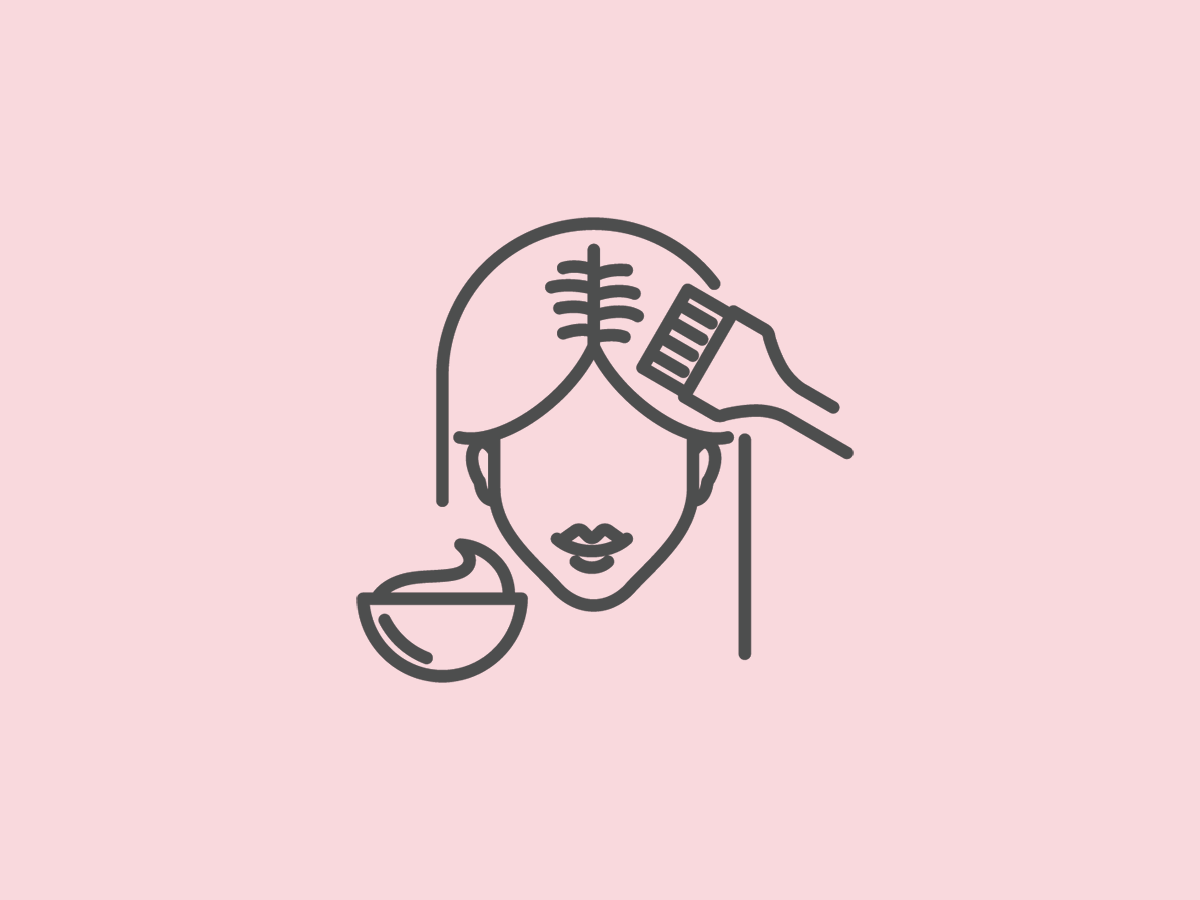
12. Bribe your hairstylist to get the first appointment when the salon reopens
Although Lee will be giving priority to “blondes in rough shape,” he offers a few words of wisdom to be one of the first clients back in the chair: “Cookies and other baked goods never hurt!”
Next, learn Jason Lee’s advice for growing out your hair.
